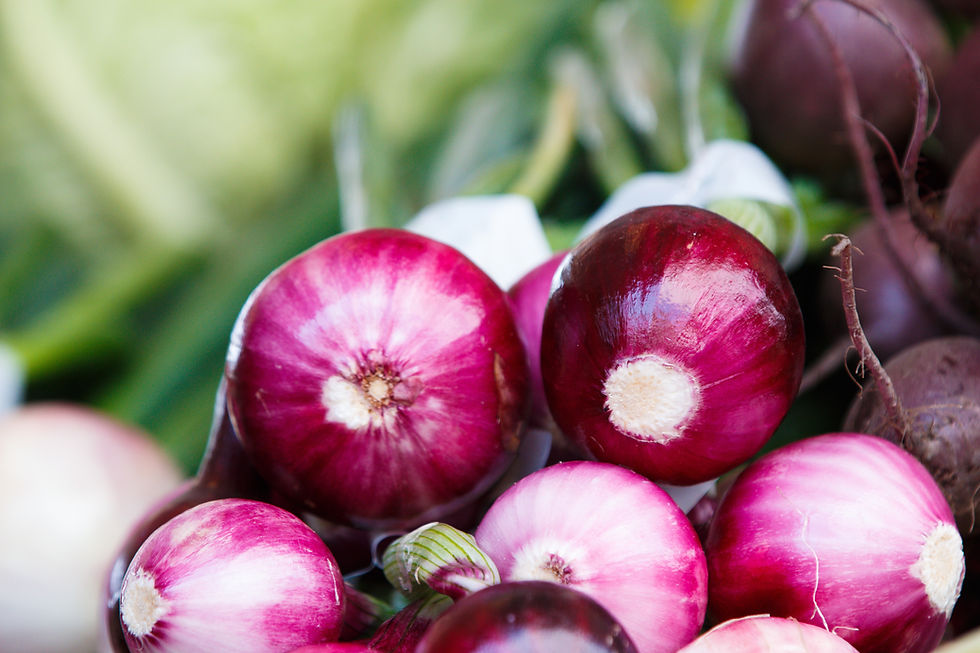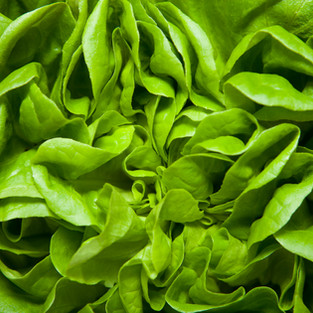Anti-Inflammatory Diet
- gabileins
- Nov 20, 2018
- 6 min read
Updated: Nov 21, 2018

In this blog post, I'll go over options to reduce inflammation through an anti-inflammatory diet. You'll learn what inflammation is, common causes of inflammation and anti-inflammatory foods to incorporate into your daily food regime.
Inflammation is really not great. By that I mean it can wreak havoc on your body and is responsible for causing and exacerbating many disease processes and syndromes. Following injury or infection, acute inflammation is a normal and healthy immune response that actually helps a person to heal.

But when inflammation becomes chronic it can become a major health issue and is related to a number of disease states. Rheumatoid arthritis, Crohn’s disease, asthma, skin conditions like eczema and psoriasis and celiac disease are all diseases that are inflammatory in nature. The list of signs and symptoms associated with inflammation goes on and on – achy joints, rosacea, headaches, skin flare ups and most autoimmune diseases have a component of inflammation connected to them.

Other chronic diseases, such as heart disease, diabetes, obesity, and cancer involve some level of inflammation. I believe that our environment, the food we eat, the world we live in is so overly toxic and we are all so chronically and deeply stressed that most of us have a highly overactive inflammatory response. This then manifests in many diseases and syndromes and/or symptoms that can be very challenging to deal with.

The medical community does not yet understand exactly how inflammation relates to cancer risk, but it is clear that it is connected to tumor progression. Current research is examining how to use anti-inflammatory mechanisms or the immune system to treat cancer. Even common anti-inflammatory medications, such as Advil or Aleve (known as NSAIDs), may have potential for reducing cancer risk. An important question remains: ‘how can I change my lifestyle to decrease inflammation?’.
One of the most powerful ways to decrease chronic inflammation is to lose weight or maintain a healthy body weight. Being overweight is a major risk factor for many diseases that are associated with inflammation, such as type 2 diabetes and cancer. Adipose tissue (i.e. fat) contributes to an inflammatory state by producing inflammatory mediators called adipocytokines. Research has shown that simple weight loss in overweight individuals can reduce inflammation. Physical activity may also contribute to a reduction in systemic inflammation, although it is unclear if this effect is independent from weight loss.
In addition to maintaining a healthy weight there are certain foods that are anti-inflammatory in nature and other foods that promote inflammation. There is no exact consensus for an anti-inflammatory diet prescription, but in general something that looks like a Mediterranean diet is considered to be the most healthy: a diet rich in non-starchy vegetables and fruit, legumes, nuts and seeds, fish, whole grains, and moderate amounts of fermented dairy products, such as yogurt and cheese. Eat more plants, less animal proteins, processed and fried foods. So I will try to tell you what is helpful to eat and what you want to avoid eating. Eat more of these foods!!!

• Cold-water fish. Cold water fish contain lots of omega-3 fatty acids, which are very beneficial and have an anti-inflammatory effect. Fish like salmon, herring, tuna and mackerel should be consumed two or three times or servings per week.

• Vitamins, minerals, and phytochemicals:
Eat more vegetables. I sound like your mother, I know. But it really is “good for you”. Eating a rich variety of plant foods – fruit, vegetables, legumes, nuts, seeds provide us with important nutrients that help promote a healthier inflammatory response and should all be part of your anti-inflammatory diet. Phytochemicals are very helpful at reducing inflammation and they are the chemicals in plants that give them color, odor, and flavor. Polyphenols, (found in green tea, grapes and berries), carotenoids, (found in sweet potatoes, apricots, and leafy greens), and flavonoids, (found in apples, citrus, soy, and coffee), are the three major types of phytochemicals that stop inflammation. Having low levels of magnesium, vitamin B6, vitamin C, vitamin E, or vitamin D has been connected with inflammation and inflammatory disease.
Some other examples of fruits and vegetables that are helpful to reducing inflammation are:
*Avocados. They contain phytosterols, carotenoid antioxidants, omega 3 fatty acids and polyhydroxolated fatty alcohols — which are all compounds that can help reduce inflammation.
*Broccoli and other cruciferous vegetables. Broccoli, Brussels sprout, kale and cauliflower and green leafy veggies contain sulforaphane, which is associated with blocking enzymes that are linked to joint deterioration and chronic inflammation. Sulforaphane also may be able to prevent or reverse damage to blood vessel linings caused by chronic blood sugar problems and inflammation.

*Watermelon. Watermelon contains lycopene which is a cellular inhibitor for various inflammatory processes. It also works as an antioxidant to neutralize free radicals.

*Onions. Their anti-inflammatory properties have made them a popular home remedy for asthma for centuries. Onions are a good source of quercetin, which inhibits histamines known to cause inflammation.
*Berries. Berries contain anthocyanins, which produce dark red pigments, and moderate inflammation.
• EAT only Whole grains. Whole grains like brown rice, quinoa and bulgur wheat have been associated with decreased CRP levels, which is a marker of inflammation. The fiber in whole grains can help mediate inflammatory processes by helping with weight loss and feeding beneficial gut bacteria associated with lower levels of inflammation.
• Certain spices. Ginger, rosemary, turmeric, oregano, cayenne, cloves and nutmeg all have anti-inflammatory components.

• Good Fat.
*Olive oil and canola oil. These are great for cooking, because they are a good source of omega-3 fatty acids. Perhaps the most characteristic aspect of an anti-inflammatory diet is the promotion of anti-inflammatory fats. A typical Western diet, is high in saturated and trans fats, has been associated with higher biomarkers of inflammation and chronic disease. Conversely, diets high in monounsaturated fats (e.g. nuts, olive oil, avocado) and omega-3 polyunsaturated fats (e.g. fish, flaxseeds, walnuts) are associated with decreased biomarkers of inflammation. It is thought that the ratio of omega-6 to omega-3 fatty acids in the Western diet is about 15:1, but a diet associated with an improvement in inflammatory state is about 1-3:1.
• Fermented foods:
Probiotics are the beneficial bacteria found in fermented foods such as yogurt, kefir, and sauerkraut. In addition to playing a role in a variety of systems – from gut health to mental health, there is some evidence that probiotics can reduce systemic inflammation.
What NOT to Eat!
• Sugar. Sugars and other refined carbohydrates and high fructose corn syrup are ‘high glycemic index foods’, which causes rapid increases in blood sugar that can then result in hyperglycemia, or high blood sugar. Hyperglycemia is linked to inflammatory diseases by triggering the release of inflammatory molecules called cytokines. Carbohydrates that contain natural fibers and fat (i.e. whole grains and legumes) have a less rapid and dramatic effect on blood glucose levels, resulting in fewer of these pro-inflammatory agents.
• Highly processed and refined foods. Same story as sugar, these foods cause wild swings in blood sugar and contribute to an inflammatory state. Think white bread, white flour, white rice, and food in packages that contain a list of many ingredients.
• Alcohol. While the in moderation alcohol can actually be good for you, anything more than a small glass of wine a day can contribute to this inflammatory state. This one is hard for me, and I don’t really have any tricks to get around it, except substituting with something that feels like a cocktail, like sparkling water and cranberry juice, or iced tea in the summer.
• Trans Fatty Acids. These are really bad, and you quite literally should never eat them. Look at ingredients listed on products carefully and really stay away from them. They are often labeled as "hydrogenated oil". Think fast food and it is generally laden with them. They were basically created by the fast food industry to create addiction. They have no redeeming value whatsoever.

• Saturated Fats. Think red meat. In moderation probably ok, but again choose fish and eggs with high levels of omega-3 fatty acids.

• Aspartame. None of the artificial sweeteners are great but this one is really not good, and is it everywhere. It is found in over 4,000 different products and is very pro-inflammatory.
• Gluten and Casein. Even if you do not have Celiac disease, gluten and casein tend to be inflammatory for most people. Gluten is mostly found in wheat products and casein in cow milk products that are processed.
These lists are by no means comprehensive but they are a good start. The most important take home message is to eat things that look like food and not things that are highly processed. While we cannot eliminate all the toxins we are exposed to on a daily basis, we can definitely include the anti-inflammatory foods I just listed to improve at least what we ingest. We can also try to reduce stress as we know that stress contributes to inflammation as well. Finding time to relax and decompress is as important as diet.
To conclude, an anti-inflammatory diet primarily entails eating whole foods and avoiding processed, packaged items! I hope that you got some helpful information from this post! Please share and comment below if you have any questions or anti-inflammatory diet tips of your own.
Subscribe to my Blog and Follow my Instagram and Facebook Page to get updated whenever I create new content.
~Dr. Alexes Hazen









































































































Kaiser OTC benefits provide members with discounts on over-the-counter medications, vitamins, and health essentials, promoting better health management and cost-effective wellness solutions.
Obituaries near me help you find recent death notices, providing information about funeral services, memorials, and tributes for loved ones in your area.
is traveluro legit? Many users have had mixed experiences with the platform, so it's important to read reviews and verify deals before booking.